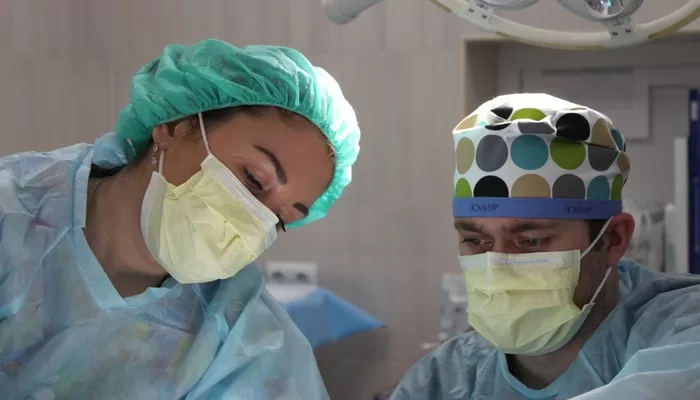Health
Aiding Recovery After Surgery: What Can You Do To Help Healing?

Millions of people undergo surgical procedures every year. Any kind of operation can be traumatic, and it’s crucial to take the time to heal and let the body and mind recover. In this guide, we’ll outline some simple steps you can take to aid recovery.
Follow instructions
The most important rule to follow when you’re in recovery after a surgical procedure is to take instructions and advice from health professionals on board. Any type of surgery can take its toll on the body, and making the wrong choices at the wrong time can set you back and increase the risk of complications. Listen to your care team and don’t be afraid to ask questions if you’re unsure about what to do when you get home, or you develop symptoms, such as a fever and ongoing or acute pain.
Give yourself time to heal
The healing process varies, and people respond differently to procedures and the scenarios that result in the need for treatment. If you’ve been through trauma, for example, it’s not just your body that will need to recover. Accidents and injuries can take their toll on your mental health. Giving yourself time to rest, recuperate and process what has happened is vital. It can be frustrating to have to lie in bed for weeks or take time off work if you’ve had surgical treatment, but if you try to do too much, too soon, this is often counterproductive. You could injure yourself, set the recovery process back and increase the risk of infection and other side effects. Try to focus on the present, rather than thinking about the future. Setting targets can be beneficial but they must be realistic. You need time for your body and mind to heal.
Understand that everyone is different
It is human nature to compare yourself to others. The trouble is that making comparisons can be unhelpful and it can sometimes be damaging, especially during times when your mental health is poor and you’re dealing with the after-effects of treatment. Some people might bounce back very quickly and defy doctors, but that won’t be the case for everyone. There are multiple factors that impact recovery times, including the type of procedure, the health status and age of the individual and the care they receive. Try to avoid making comparisons with others and trying to beat deadlines or exceed expectations. Let your body heal and recover at its own pace. Don’t push yourself or put too much pressure on yourself to get back to ‘normal.’
Think practically
There is an element of the unknown for everyone who goes into an operating theater. No doctor can ever be 100% sure about how the procedure will go and how quickly or effectively the patient will recover. While there is no way of knowing what will happen after a procedure, there are steps you can take to try and make life easier. Think practically and try to make arrangements. Whether you are having treatment for an underlying illness, you’ve injured yourself in an accident, or you’re preparing for plastic surgery recovery, it’s wise to think about work, how you’re going to cope at home and how you’re going to get around and attend follow-up appointments. Talk to your boss and keep in contact with them, make adjustments at home to help you get around safely and ask family members and friends to help out with grocery shopping, cleaning, driving and household chores.
Rest
Rest is essential following any type of surgical treatment. When you’re in the hospital or at home recovering, it’s important to listen to your body. If you get tired easily, or you feel exhausted, take a break and make sure you’re getting enough sleep. You may find that you feel different every day. Take each day as it comes. You might be energized one day and fatigued the next. It can take a long time to get over a procedure and restore normal sleep cycles and energy levels.
Move when you can
Movement can be hugely beneficial during the recovery process. After treatment, the body needs time to rest, but it’s also critical to start strengthening the joints and muscles and slowly improving mobility. Health professionals will guide you in terms of when to start moving, how much exercise to do and the types of activities and movements to incorporate into your daily or weekly schedule. Physical therapy can often be beneficial for building strength and suppleness and conditioning the body to optimize performance and accelerate the healing process. It is essential to check with experts before you start new exercise regimes or try different sports and activities. You may be advised to avoid certain activities, such as intense cardio, lifting weights, contact games and fighting sports, for several weeks after undergoing surgery.
Prioritize mental health
It’s understandable to focus on physical health after a surgical procedure, but it’s equally important to try to protect and nourish mental health. Many people experience anxiety, depression and low mood during their recovery and it’s also common to feel nervous and scared about what might happen next. There are treatments and therapies available, including counseling, talking therapies and medication, as well as self-help techniques, such as regular exercise if you are able to increase activity levels safely, meditation, breathing exercises, creative activities and hobbies, spending time with friends and relatives and taking time to relax.

Source: Pexels
Millions of people undergo surgical procedures every year. From plastic surgery and routine operations to emergency surgery following traumatic accidents, there are many reasons why people find themselves in recovery. If you are recovering after treatment, it’s crucial to be proactive in helping your body and mind to heal. Listen to instructions from health experts, give yourself time to mend, and don’t put too much pressure on yourself. Ask family and friends to help out, prepare as much as you can and rest when you feel tired. Move your body when you can, take advice from doctors and physical therapists and look after your mental health, as well as your physical health.























































